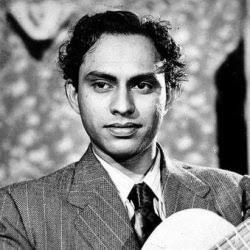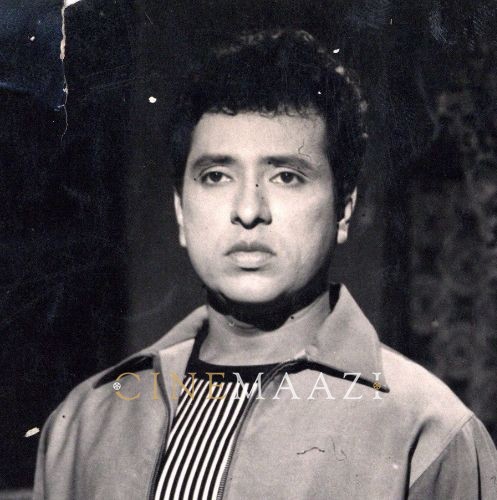Kongara Jaggaiah

Subscribe to read full article
This section is for paid subscribers only. Our subscription is only $37/- for one full year.
You get unlimited access to all paid section and features on the website with this subscription.
Not ready for a full subscription?
You can access this article for $2 , and have it saved to your account for one year.
- Born: 31 December, 1928 (Guntur, Andhra Pradesh)
- Died: 5 March, 2004 (Chennai)
- Primary Cinema: Telugu
Actor, broadcaster, political leader and poet, Kongara Jaggaiah was a leading performer of Telugu plays and films. Regarded as one of the finest method actors of Indian cinema, his powerful voice earned him the title Kanchu Kantham Jaggayya (Telugu) or the Bronze Voiced Jaggayya. Over the course of his film career which spans 40 years, he starred in no less than 80 films as a lead actor, even as he played the lead antagonist across genres. He is memorable for his films such as Bangaru Papa (1954), Ardhangi (1955), Edi Nijam (1956), Todi Kodallu (1957), Dr Chakravarti (1964), Antastulu (1965), Meghasandesam (1982) which featured at the Cannes Film Festival, and Seethakoka Chiluka (1981), all of which were conferred the National Film Award for Best Feature Film in Telugu. While he is a recipient of the Tamil Nadu state's Kalaimamani, he has been honoured by the Government of India with the Padma Bhushan in 1992 for his contribution towards Indian cinema.
Born on 31 December, 1928 in Guntur, Andhra Pradesh, he made his debut on stage at the young age of 11. Continuing to act onstage, he quit attending Andhra Christian College in Guntur, to join the Telugu newspaper, Desabhimaani, as a journalist. He resumed college a year later to complete his degree, and went on to teach temporarily at high school in his home district, Duggirala. Thereafter, Jaggaiah joined All India Radio, working as a broadcaster, his grandiose voice standing out and earning him a considerable fan following.
He made his film debut with Priyuralu (1952), in which he played the leading role. However, its disappointing run at the box office combined with the tepid response to his next - Ardasham (1952) and Beedala Aasthi (1955) -saw him deciding to return his hometown. The situation changed when his next, Bangaru Papa (1954) and Ardhangi (1955), clicked and rejuvenated his career. There was no looking back for Kongara Jaggaiah, who went on to act in scores of films over the next several decades.
In the early years of his career itself, he made a mark portraying exceptional characters in films such as Donga Ramudu (1955). This film, incidentally, was archived by the Film and Television Institute of India. Featuring over the years in several award-winning films, he co-produced and starred in the political drama Padandi Munduku (1962) based on the Salt March. The film was not only screened at the International Film Festival of India, and the Tashkent Film Festival, but also received a special mention at the 5th Moscow International Film Festival.
Kongara Jaggaiah also reaped much appreciation as a character actor. He left his mark in films such as Velugu Needalu (1961), Chitti Tammudu (1962), Aaradhana (1962), Aatma Balam (1964), Sumangali (1965), Gudi Gantalu (1965), Nava Ratri (1966), Aame Evaru? (1966), Aastiparulu (1966), Jarigina Katha (1969), Bala Mitrula Katha (1972), Badi Pantulu (1972), Bharya Biddalu (1972), and Devudu Chesina Manushulu (1973). He played a wide variety of characters, from the British official Rutherford in Alluri Sita Rama Raju (1974), to Pontius Pilate in Karunamayudu(1978). Other notable performances feature in films such as Veta (1986), Chantabbai (1986), Pasivadi Pranam (1987), Dharma Kshetram (1992) and Bobbili Simham (1994). His work in some of his films won him the Andhra Pradesh state Nandi Award for Best Character Actor.
Jaggaiah was elected on a Congress party ticket from Ongole, Andhra Pradesh, to the Lok Sabha, the lower house of the Indian parliament, following which he served one term.
He also translated Rabindranath Tagore’s Gitanjali as well as Tagore’s play, Bisarjan into Telugu.
Kongara Jaggaiah passed away on 5 March, 2004, leaving behind an immense contribution to cinema and art.
-
Filmography (1)
SortRole
-
Priyuralu 1952
-









.jpg)



